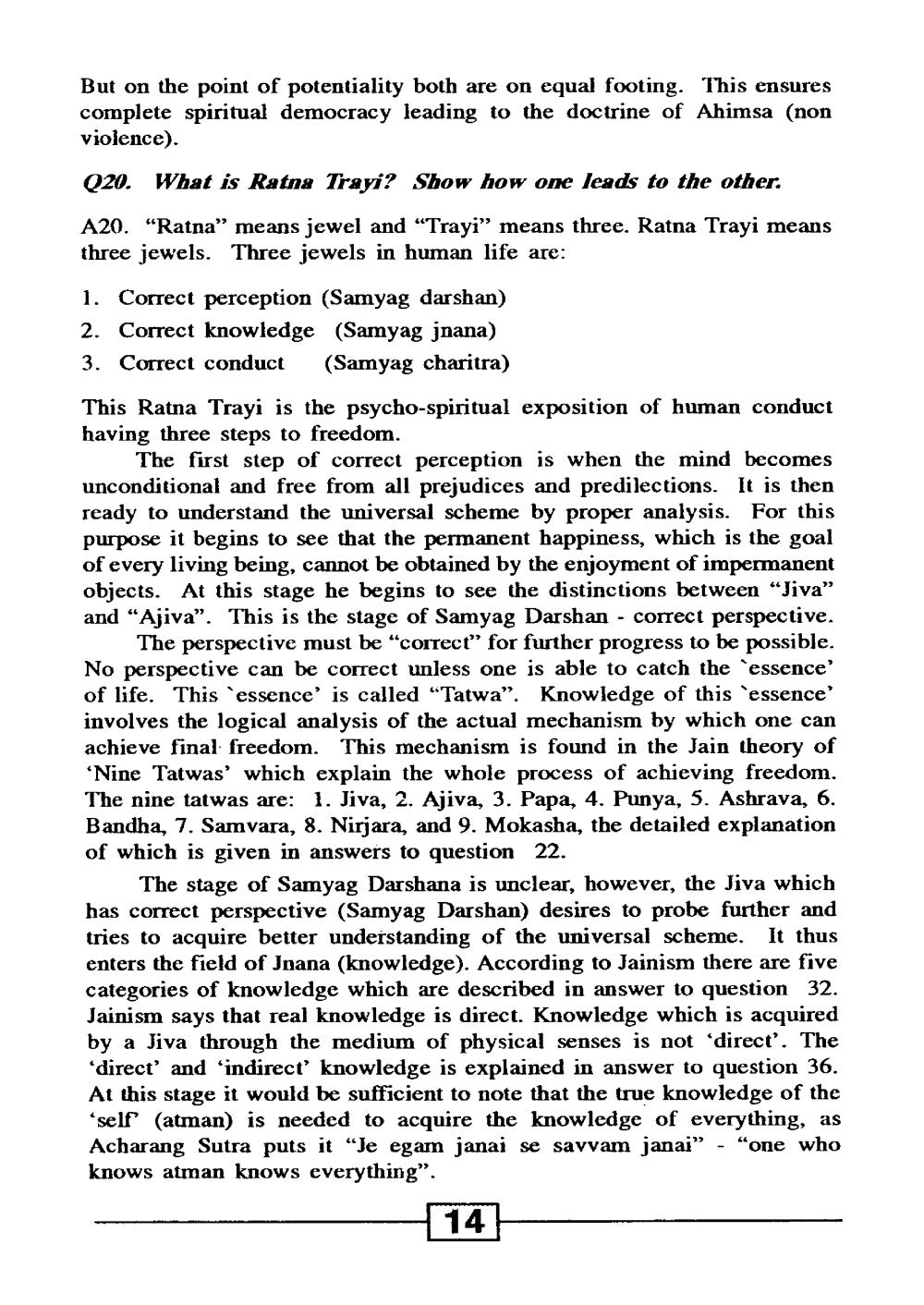________________
But on the point of potentiality both are on equal footing. This ensures complete spiritual democracy leading to the doctrine of Ahimsa (non violence).
Q20. What is Ratna Trayi? Show how one leads to the other.
A20. “Ratna" means jewel and “Trayi” means three. Ratna Trayi means three jewels. Three jewels in human life are:
1. Correct perception (Samyag darshan) 2. Correct knowledge (Samyag jnana) 3. Correct conduct (Samyag charitra) This Ratna Trayi is the psycho-spiritual exposition of human conduct having three steps to freedom.
The first step of correct perception is when the mind becomes unconditional and free from all prejudices and predilections. It is then ready to understand the universal scheme by proper analysis. For this purpose it begins to see that the permanent happiness, which is the goal of every living being, cannot be obtained by the enjoyment of impermanent objects. At this stage he begins to see the distinctions between “Jiva" and “Ajiva". This is the stage of Samyag Darshan - correct perspective.
The perspective must be "correct” for further progress to be possible. No perspective can be correct unless one is able to catch the essence' of life. This 'essence' is called "Tatwa". Knowledge of this essence' involves the logical analysis of the actual mechanism by which one can achieve final freedom. This mechanism is found in the Jain theory of 'Nine Tatwas' which explain the whole process of achieving freedom. The nine tatwas are: 1. Jiva, 2. Ajiva, 3. Papa, 4. Punya, 5. Ashrava, 6. Bandha, 7. Samvara, 8. Nirjara, and 9. Mokasha, the detailed explanation of which is given in answers to question 22.
The stage of Samyag Darshana is unclear, however, the Jiva which has correct perspective (Samyag Darshan) desires to probe further and tries to acquire better understanding of the universal scheme. It thus enters the field of Jnana (knowledge). According to Jainism there are five categories of knowledge which are described in answer to question 32. Jainism says that real knowledge is direct. Knowledge which is acquired by a Jiva through the medium of physical senses is not direct'. The 'direct' and 'indirect' knowledge is explained in answer to question 36. At this stage it would be sufficient to note that the true knowledge of the ‘self (atman) is needed to acquire the knowledge of everything, as Acharang Sutra puts it "Je egam janai se savvam janai" - "one who knows atman knows everything".
14




